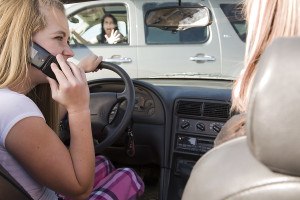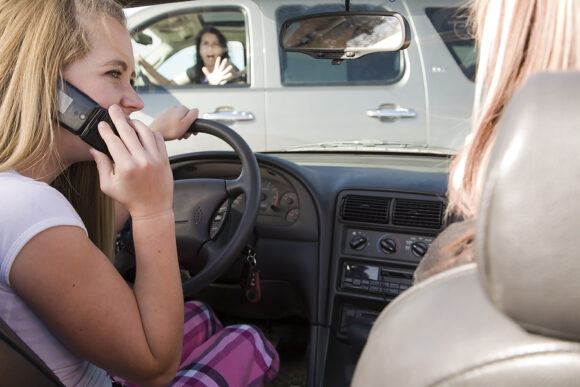A report from The Allstate Foundation finds many parents are largely unaware that their teens are speeding, driving while distracted, and even driving under the influence. Making matters worse, teens may be picking up these same behaviors from their parents.
The findings were released in The Foundation’s new Driving Change Report. Among the key data:
- Seventy-nine percent (79 percent) of teens admit to speeding, but only 55 percent of parents believe their teens speed.
- Ninety-five percent (95 percent) of teens admit to getting a moving violation; only 79 percent of parents believe their teens have committed an offense.
- Twenty-three percent (23 percent) of teens admit they’ve driven after drinking alcohol and/or using marijuana, but only 7 percent of parents believe their teens have driven under the influence.
- Eighty-seven percent (87 percent) of teens admit to using cellphones while driving, but only 63 percent of parents say their teens use phones while driving.
“Our teen safe driving program has contributed to a nearly 48 percent decline in teen crash fatalities since 2005,” said Steve Sorenson, executive vice president, Allstate. “While there has been progress, we continue to encourage parents and teens to have an open dialogue about driving. It’s also important that parents ensure their teens are wearing their seatbelts, obeying speed limits and eliminating distractions, because these actions help to keep teens safer on the road.”
The report also found that parents are engaged in some of the same risky behaviors as their teens:
- Eighty-four percent (84 percent) of parents admit to speeding (compared to 79 percent of teens).
- Eighty-eight percent (88 percent) of parents say they use their phones while driving (compared to 87 percent of teens).
“Teens continue to tell us their parents are the number one influence on how they drive, so as parents we have an important responsibility to model good driving behaviors,” added Sorenson. “We must find new and compelling ways to motivate teens and parents to engage in safe driving habits.”
Additional Driving Change Report findings:
Compared to 2005, today’s teens are much more concerned about the consequences of crashes.
- The number of teens age 15-17 who worry about financial and legal consequences from car crashes has nearly tripled (188 percent) since 2005.
- There has been a 137 percent increase in the last 10 years in the number of teens age 15-17 who worry about disappointing their parents and friends if they cause a crash.
Today’s teens are also surprisingly receptive to getting more driving experience.
- Eighty-three percent (83 percent) of teens and 81 percent of parents wish that teens had more experience and practice before getting a driver’s license.
Source: Allstate Foundation
Was this article valuable?
Here are more articles you may enjoy.


 Founder of Auto Parts Maker Charged With Fraud That Wiped Out Billions
Founder of Auto Parts Maker Charged With Fraud That Wiped Out Billions  Uber Jury Awards $8.5 Million Damages in Sexual Assault Case
Uber Jury Awards $8.5 Million Damages in Sexual Assault Case  Charges Dropped Against ‘Poster Boy’ Contractor Accused of Insurance Fraud
Charges Dropped Against ‘Poster Boy’ Contractor Accused of Insurance Fraud  China Bans Hidden Car Door Handles in World-First Safety Policy
China Bans Hidden Car Door Handles in World-First Safety Policy 